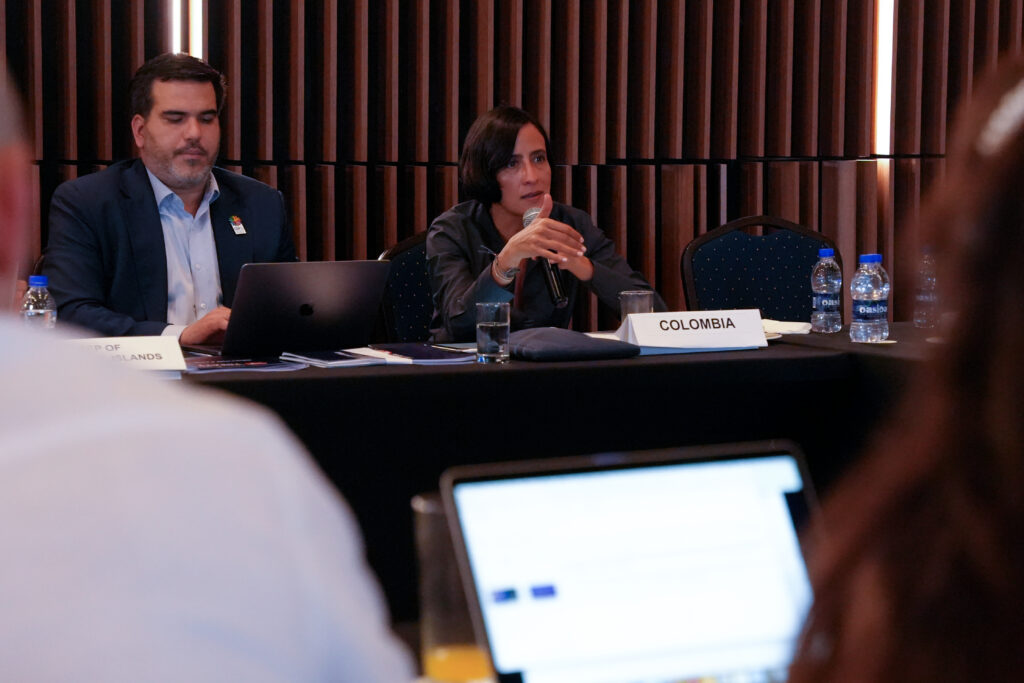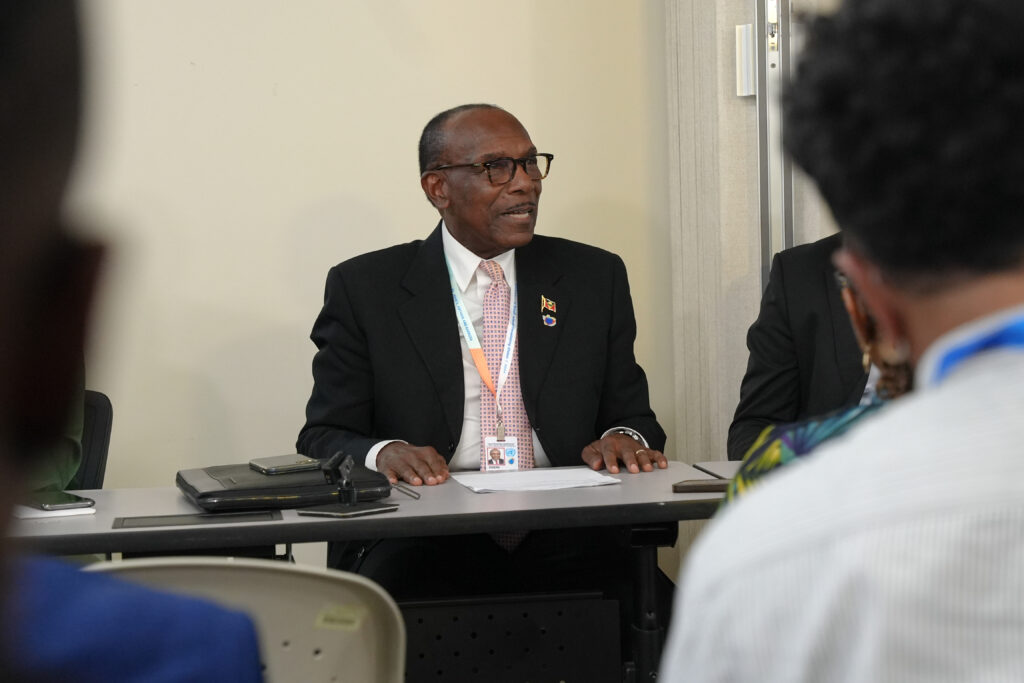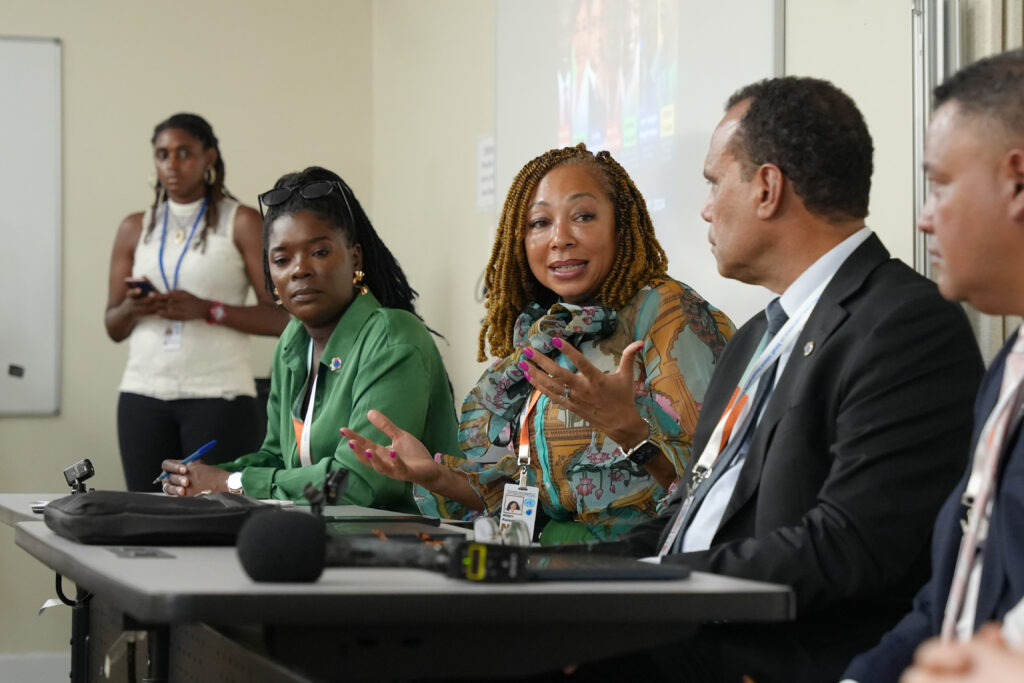The Caribbean twin-island nation of Antigua and Barbuda is currently hosting the once-a-decade 4th International Conference on Small Island Developing States (SIDS4), a global event dedicated to addressing the unique vulnerabilities and challenges of Small Island Developing States (SIDS). The conference aims to foster sustainable development through international collaboration, strengthen resilience against the climate crisis, and advance economic, social, and environmental progress.
At the open plenary of the summit, the Republic of the Marshall Islands (RMI) has officially announced their endorsement of the Fossil Fuel Non-Proliferation Treaty proposal, thus becoming the 13th nation to join the coalition alongside Vanuatu, Tuvalu, Tonga, Fiji, the Solomon Islands, Niue, Antigua and Barbuda, Timor-Leste, Palau, Colombia, Samoa, and Nauru.
These climate progressive countries, frontrunners of climate action and ambition, are leading a global effort to seek a mandate to negotiate a Treaty, a new legal mechanism that will secure an equitable transition away from oil, gas, and coal, and the world’s chance to stay within the 1.5°C climate limit.
Dr. Hilda Heine, President of the Republic of the Marshall Islands, declared during the summit’s opening plenary: “Fossil fuels lie at the heart of the planetary crisis we face today. My country, resilient as it is—having endured war, colonialism, and nuclear testing—understands the perils posed by fossil fuels and the imperative to address them as the urgent threat they represent. We take pride in aligning with the nations supporting the Fossil Fuel Non-Proliferation Treaty initiative today.”
Why another Treaty?
In the face of escalating climate impacts, the RMI’s endorsement underscores the island nation’s leadership in the battle against climate change and the defence of human rights.
The Fossil Fuel Treaty initiative, modelled after successful international agreements like the Nuclear Non-Proliferation Treaty, aims to foster global cooperation to mitigate climate change by addressing one of its primary causes: fossil fuel production and consumption.
It has three main objectives: halting the expansion of fossil fuel production by terminating new exploration and extraction projects, implementing a just and equitable transition plan for workers and communities reliant on the fossil fuel industry, and promoting and supporting the transition to renewable energy sources.
By directly confronting fossil fuel production and consumption, the Fossil Fuel Treaty aims to be a tool to ensure a safer, healthier, and more sustainable future for all.
With the inclusion of the RMI, the proposal now holds support from 12 out of the 39 SIDS nations, in addition to the Republic of Colombia, a significant developing nation and producer of coal and gas.

Susana Muhamad, Minister of Environment and Sustainable Development of Colombia, commended the Marshall Islands for its leadership: “The Marshall Islands has historically been a leader in climate negotiations. Their clear representation of climate change realities helps propel the negotiation of a binding Fossil Fuel Non-Proliferation Treaty, vital for a coherent transition aligned with social justice.”
This international support extends not only to these 13 countries but also to over 100 cities, more than 2,500 civil society organisations, and half a million individuals. They all advocate for urgent action to phase out fossil fuels and promote investments in clean energy solutions, particularly crucial for climate-vulnerable nations like those in the Caribbean.
Fossil fuel dependency in the face of climate vulnerability
Caribbean nations, often categorised as being either dependent on fossil fuel imports or fossil fuel production, are still vulnerable to climate change impacts.
These beautiful nations are particularly susceptible to the adverse effects of climate change. Rising sea levels are inundating low-lying areas, displacing communities and damaging infrastructure. The heightened frequency and intensity of hurricanes wreak havoc on the islands, resulting in loss of life, economic instability, and setbacks in development.
It’s important to note that some oil and gas-rich countries like Suriname, Guyana, and Trinidad and Tobago play a significant role in the Caribbean’s energy landscape. These nations possess substantial reserves of fossil fuels, particularly oil and natural gas.
Suriname and Guyana, in particular, have emerged as major players in the global oil industry following significant offshore discoveries of oil reserves. These discoveries have generated optimism for economic growth, job creation, and revenue generation in these countries. Similarly, Trinidad and Tobago has long been a key player in the Caribbean’s oil and gas sector, with extensive reserves of natural gas and a history of petroleum production. The energy industry has historically been a cornerstone of the country’s economy, contributing significantly to government revenues and export earnings.
However, Trinidad and Tobago also faces challenges related to environmental pollution, carbon emissions, and the need to diversify its economy away from fossil fuels towards more sustainable and resilient energy sources.
Despite these challenges, there is growing recognition of the need for oil and gas-producing countries in the Caribbean to transition towards cleaner and more sustainable energy systems. Renewable energy resources, such as solar, wind, and hydroelectric power, offer opportunities for diversification, energy security, and climate resilience in these countries.
Moreover, investments in renewable energy infrastructure and technologies can stimulate economic development, create green jobs, and reduce reliance on imported fossil fuels.

A bold step for a better future
Therefore, the question arises: which Caribbean nation will take the bold step to join Antigua and Barbuda in endorsing the Fossil Fuel Treaty proposal?
Hon. Sir Molwyn Joseph, Minister of Health, Wellness & The Environment of Antigua and Barbuda, emphasised the importance of unity among small island developing states: “It is extremely important for small island developing states to act in solidarity. We cannot rely on large economies responsible for fossil fuel proliferation causing global warming and devastation to island states. The endorsement of the Marshall Islands is a welcome declaration, and I hope to persuade all Caribbean islands to join this coalition.”

The science and the data are clear, fossil fuels are responsible for 86% of CO2 emissions in the past decade. Close to two thirds of the greenhouse gases (GHGs) added to the atmosphere since the Industrial Revolution can be traced to just 90 fossil fuel companies and world governments are on track to produce 110% more fossil fuels than is consistent with the 1.5°C goal.
SIDS are among the most vulnerable to climate change despite contributing less than 1% to global GHG emissions. So as they meet in Antigua and Barbuda, the call is unmistakable: an equitable fossil fuel phase out and a global energy transition needs to be prioritised and concretely actioned in a way that is fast, fair and financed.